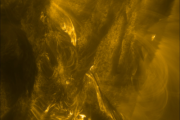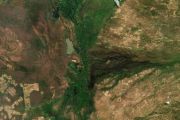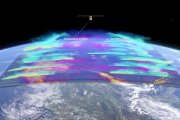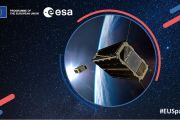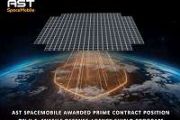
Copernical Team
Lunar soil has the potential to generate oxygen and fuel

Soil on the moon contains active compounds that can convert carbon dioxide into oxygen and fuels, scientists in China report May 5 in the journal Joule. They are now exploring whether lunar resources can be used to facilitate human exploration on the moon or beyond.
Nanjing University material scientists Yingfang Yao and Zhigang Zou hope to design a system that takes advantage of lunar soil and solar radiation, the two most abundant resources on the moon. After analyzing the lunar soil brought back by China's Chang'e 5 spacecraft, their team found the sample contains compounds—including iron-rich and titanium-rich substances—that could work as a catalyst to make desired products such as oxygen using sunlight and carbon dioxide.
Based on the observation, the team proposed an "extraterrestrial photosynthesis" strategy. Mainly, the system uses lunar soil to electrolyze water extracted from the moon and in astronauts' breathing exhaust into oxygen and hydrogen powered by sunlight.
NASA to Discuss Webb Telescope Alignment, Instrument Setup
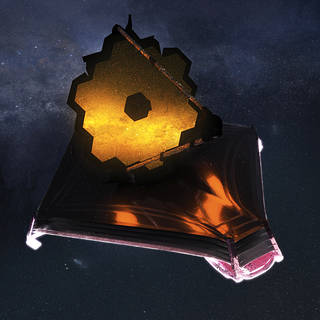 NASA will hold a media teleconference at 11 a.m. EDT on Monday, May 9, to discuss progress toward preparing the James Webb Space Telescope for science operations.
NASA will hold a media teleconference at 11 a.m. EDT on Monday, May 9, to discuss progress toward preparing the James Webb Space Telescope for science operations. 'Spot the difference' to help reveal Rosetta image secrets
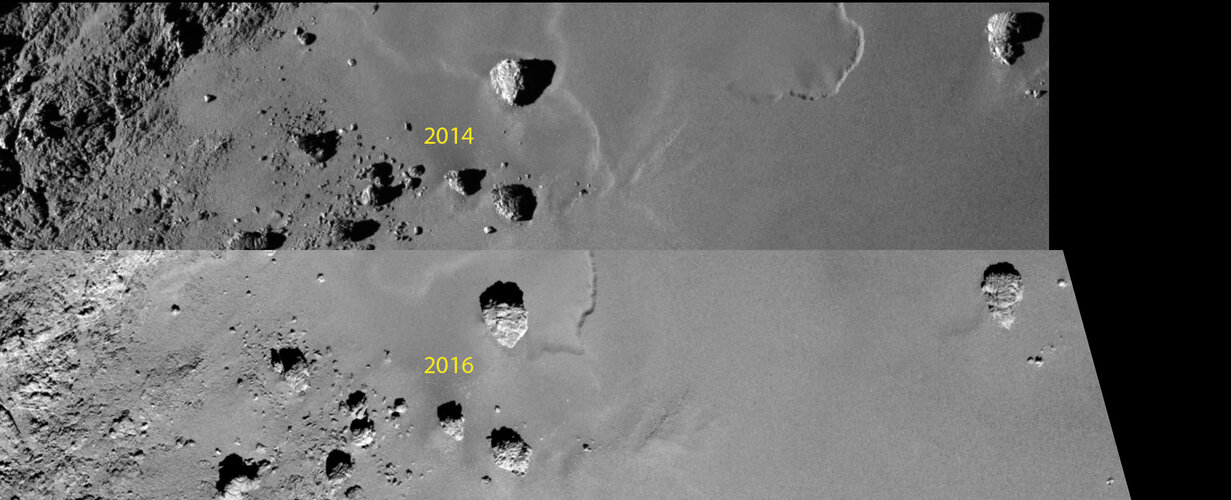
Today, ESA and the Zooniverse launch Rosetta Zoo, a citizen science project that invites volunteers to engage in a cosmic game of 'spot the difference'. By browsing through pictures collected by ESA's Rosetta mission, you can help scientists figure out how a comet's surface evolves as it swings around the Sun.
New study reveals the effect of extended space flight on astronauts' brains

Long-duration space flight alters fluid-filled spaces along veins and arteries in the brain, according to new research from Oregon Health & Science University and scientists across the country.
The study published today in the journal Scientific Reports.
"These findings have important implications as we continue space exploration," said senior author Juan Piantino, M.D., assistant professor of pediatrics (neurology) in the OHSU School of Medicine. "It also forces you to think about some basic fundamental questions of science and how life evolved here on Earth."
The research involved imaging the brains of 15 astronauts before and after extended tours of duty on the International Space Station.
Researchers used magnetic resonance imaging to measure perivascular space—or the space around blood vessels—in the brains of astronauts prior to their launch and again immediately after their return. They also took MRI measurements again at one, three and six months after they had returned. Astronauts' images were compared with those taken of the same perivascular space in the brains of 16 Earth-bound control subjects.
Comparing before and after images, they found an increase in the perivascular spaces within the brains of first-time astronauts, but no difference among astronauts who previously served aboard the space station orbiting earth.
BRICS to use big data to achieve sustainable development goals
 The Chinese Academy of Sciences will enhance dialogue and collaboration with peers from BRICS countries - Brazil, Russia, India, China and South Africa - to use big data as a tool to achieve sustainable development, scientists said during the BRICS Forum on Big Data for Sustainable Development, which began on Tuesday.
Entrusted by CAS President Hou Jianguo, Zhang Yaping, vice-president of
The Chinese Academy of Sciences will enhance dialogue and collaboration with peers from BRICS countries - Brazil, Russia, India, China and South Africa - to use big data as a tool to achieve sustainable development, scientists said during the BRICS Forum on Big Data for Sustainable Development, which began on Tuesday.
Entrusted by CAS President Hou Jianguo, Zhang Yaping, vice-president of NASA's EMIT will map tiny dust particles to study big climate impacts
 Blown by wind across continents and oceans, dust does more than make skies hazy, congest lungs, and leave a film on windshields. Also known as mineral dust or desert dust, it can influence weather, hasten snowmelt, and fertilize plants on land and in the ocean. Particles from North Africa can travel thousands of miles around the globe, sparking phytoplankton blooms, seeding Amazonian rainforests
Blown by wind across continents and oceans, dust does more than make skies hazy, congest lungs, and leave a film on windshields. Also known as mineral dust or desert dust, it can influence weather, hasten snowmelt, and fertilize plants on land and in the ocean. Particles from North Africa can travel thousands of miles around the globe, sparking phytoplankton blooms, seeding Amazonian rainforests Kacific launches all-in-one CommsBox for disaster relief
 Kacific Broadband Satellites Group is launching an innovative emergency connectivity solution, CommsBox, designed to provide broadband service in emergency or disaster zones rapidly.
Kacific CommsBox is a transportable, all-in-one satellite communications product that can be rapidly deployed in disaster zones when other communication channels fail. The turnkey solution is designed to meet
Kacific Broadband Satellites Group is launching an innovative emergency connectivity solution, CommsBox, designed to provide broadband service in emergency or disaster zones rapidly.
Kacific CommsBox is a transportable, all-in-one satellite communications product that can be rapidly deployed in disaster zones when other communication channels fail. The turnkey solution is designed to meet All the science in half the time: Sols 3464-3465
 We have cleared the "Greenheugh pediment" and the mix of sandy, steep, and rough terrain that challenged our drives up and down it. However, we are finding that as we make our way up Mount Sharp along a new route, some of the same driving gremlins are with us.
Yesterday's drive made it just about all the way to its endpoint, but Curiosity encountered higher than expected tilts as she attem
We have cleared the "Greenheugh pediment" and the mix of sandy, steep, and rough terrain that challenged our drives up and down it. However, we are finding that as we make our way up Mount Sharp along a new route, some of the same driving gremlins are with us.
Yesterday's drive made it just about all the way to its endpoint, but Curiosity encountered higher than expected tilts as she attem After ISS command change, NASA's Crew-3 prepares to undock for trip home
 NASA's Crew-3 astronauts are preparing to undock from the International Space Station on Thursday after a six-month stay at the orbital outpost.
Raja Chari, Kayla Barron and Tom Marshburn of NASA, along with Matthias Maurer of Germany, are expected to board their Dragon spacecraft and close the hatch at 11:20 p.m. EDT, ahead of undocking from the ISS for the trip back to Earth.
C
NASA's Crew-3 astronauts are preparing to undock from the International Space Station on Thursday after a six-month stay at the orbital outpost.
Raja Chari, Kayla Barron and Tom Marshburn of NASA, along with Matthias Maurer of Germany, are expected to board their Dragon spacecraft and close the hatch at 11:20 p.m. EDT, ahead of undocking from the ISS for the trip back to Earth.
C DARPA seeks proposals leading to in-space demonstration of nuclear thermal rocket
 DARPA is seeking proposals for Phases 2 and 3 of the Demonstration Rocket for Agile Cislunar Operations (DRACO) program for the design, development, fabrication, and assembly of a nuclear thermal rocket engine. The goal is to execute an in-space flight demonstration of nuclear thermal propulsion in fiscal year 2026.
The overall objective of DRACO is to enable time-critical missions over va
DARPA is seeking proposals for Phases 2 and 3 of the Demonstration Rocket for Agile Cislunar Operations (DRACO) program for the design, development, fabrication, and assembly of a nuclear thermal rocket engine. The goal is to execute an in-space flight demonstration of nuclear thermal propulsion in fiscal year 2026.
The overall objective of DRACO is to enable time-critical missions over va 






